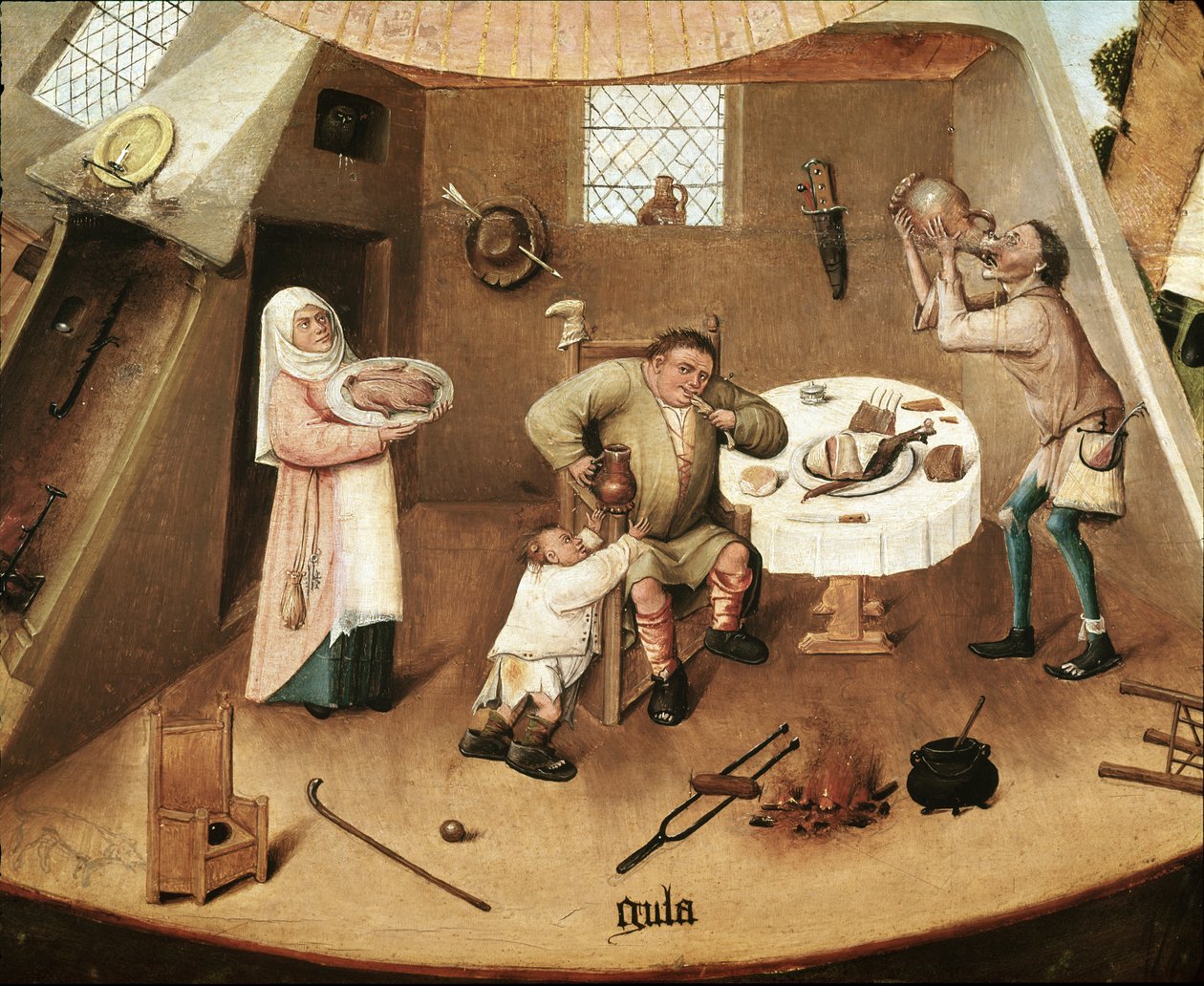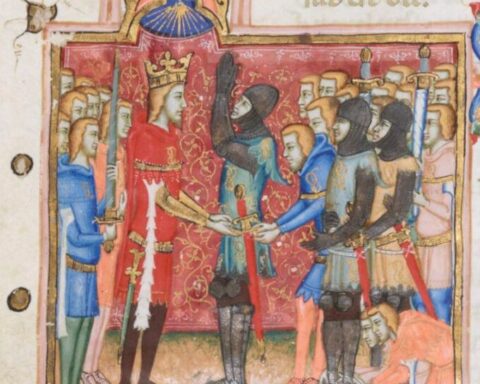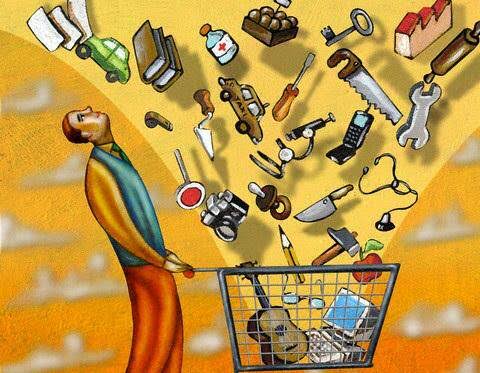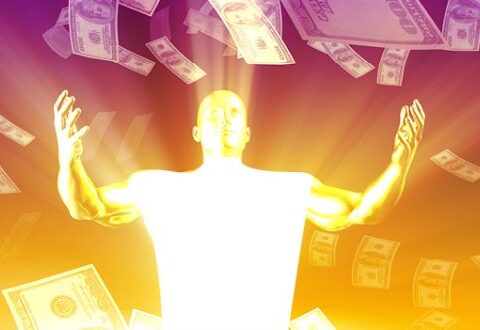Goethe, in Faust, realized that the paper money economy—which he saw as a pact with the Devil—would dominate the future and bring about the end of the old order. From the second half of the 17th century onward, many thinkers began to develop ideas to legitimize this emerging monetary economy. Enrichment became the most exalted goal of both the family and the state; “political economy” was defined as “the science of acquiring property and becoming wealthy.” The Physiocrats, Montesquieu, and Voltaire all glorified wealth and luxury, believing that in doing so, prosperity would trickle down to the broader society. They defended Hobbes’ idea that man is a wolf to man, the fundamental philosophy behind Mandeville’s The Fable of the Bees, and the notion that “a society without the pursuit of luxury and wealth will perish.” Naturally, there were those who strongly opposed them, who saw the picture they painted as one of “repulsive wealth”—Rousseau, for instance, was among them. Rousseau argued that violence was intrinsic to the act of becoming wealthy, and that the pursuit of luxury stemmed from envy, pride, jealousy, and the desire to be distinguished. He asserted that the pursuit of wealth, luxury, and fortune should not be an end in itself, neither for an individual nor for society as a whole, and that if it were, it would only increase the number of poor. According to Rousseau, it was extremely dangerous for political economy to aim at forming a social and political philosophy.
Middle-of-the-road thinkers like Adam Smith and David Hume, on the other hand, accepted the human desire for wealth as part of human nature, while at the same time trying to mitigate the damage it could cause through morality, politics, logic, and criticism. According to Smith, self-love and the urge to display oneself were among the primary motivations behind human action. The “self” had an insatiable desire to gain the approval of others. Smith grounded both the desire for wealth and the necessity of balancing the greed arising from it with morality in this understanding.
Perhaps the critics were right, but it was undoubtedly the first group who triumphed. The middle-of-the-roaders were terribly mistaken in believing that a reasonable middle path could be found. The process that has brought us to today’s claims—that economics has severed its ties with morality and lost its virtue—passed through those very stages. The pursuit of wealth and luxury, and the modes of existence that accompany it, have become so legitimized that, in the words of Guy Debord, author of The Society of the Spectacle, we have moved from existing through ownership to existing through appearance. Contrary to the claims that luxury spending increases trade and brings peoples closer together, wealth did not trickle down to the masses; instead, income disparities within individual societies and across the world have reached chasmic proportions.
One of those who have reflected deeply on the dynamics of capitalism and the philosophy and psychology of money is Metin Sarfati, who has spent years trying to correct the widespread misunderstanding of Adam Smith. He writes: “Proust masterfully depicts envy in his works. He describes the pain experienced by the envious. Diogenes once wrote: ‘Desire is the pain caused by someone else having what we want. We even feel envy when someone else possesses what we ourselves already have.’ If wanting or envying what another person or another society possesses is a fundamental economic dynamic today, then, according to Proust, must all of humanity be suffering? In that case, enrichment would seem to be the reward for this suffering. And isn’t luxury turning into an obsession, a fixation today? If the pursuit of luxury is about creating a difference between ‘me’ and ‘the others,’ won’t this also incite hostility and violence between ‘us’ and ‘them,’ those who belong to another world? … In the fear of being lost in the bottomless pit of promised eternal pleasure, isn’t today’s individual driven by the need to be visible?” Like many others, I agreed with Sarfati’s words and questions—but I could not stop myself from opposing him on a fundamental point.
Where can we go without spirituality?
Sarfati believes that the solution lies in returning today’s economy to the agenda of political economy and reuniting it with the ethics from which it has been severed. At the same time, however, he approves of moving away from the theological discourse of the 17th century. Let us set aside, for now, the debates over whether there is a direct and entirely overlapping connection between morality and religious belief—they will surely resurface in the future. Let us also temporarily disregard the discussions on how closely academic ethics can resemble social morality, and Levinas’s debate on the priority of ethics over ontology. Let me now express my fundamental objection to Sarfati. I believe that without the constant reminder provided by religious tradition regarding the dual nature of human beings, it is impossible to cope with greed; without recognizing and understanding our spiritual dimension that transcends greed, we cannot find a way out. Yes, humans are not only bloodthirsty and destructive (Baqarah/30) but also impatient, greedy, and insatiable (Ma’arij/19). But human nature is not limited to these qualities. Humans are also the vicegerents of God on earth (Baqarah/30), created from His own spirit (Sajdah/9)… Looking at the current state of our world, isn’t it evident that morality which remains only at the level of reason and theoretical doctrine is insufficient to curb greed? Wouldn’t a religious approach—one that is rooted in tradition, asserts a moral origin in human nature, and holds that our desires also contain humanity—serve more as a support than a hindrance in the effort to reintroduce moral virtues into economics and resist neoliberal domination? This is the line of thought I follow, and these are the questions that occupy my mind.






